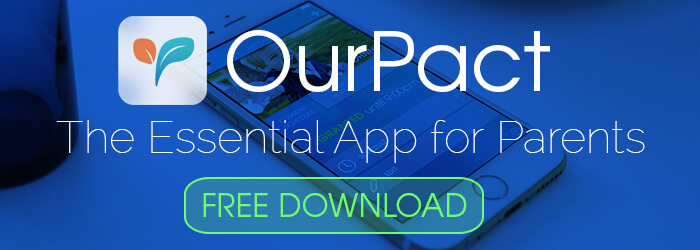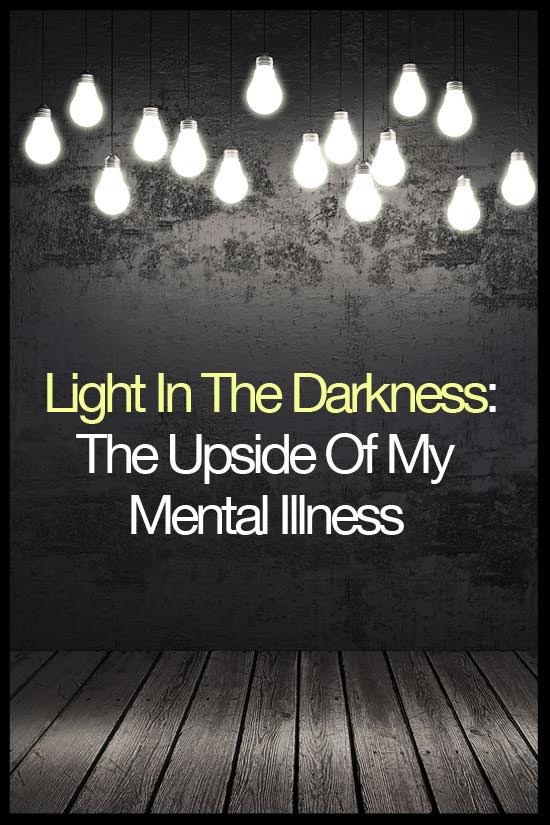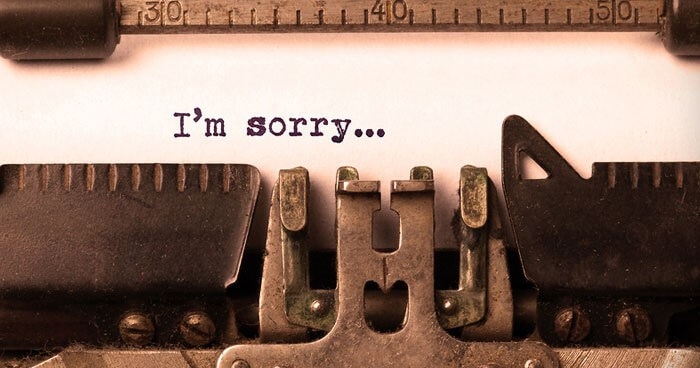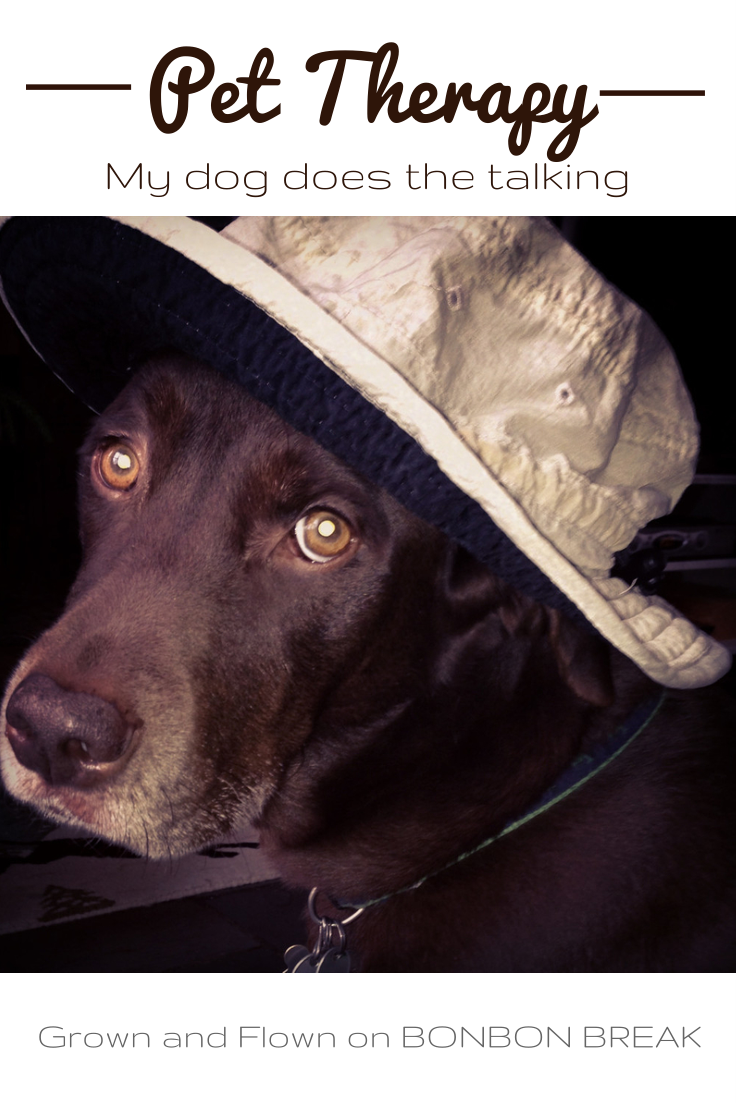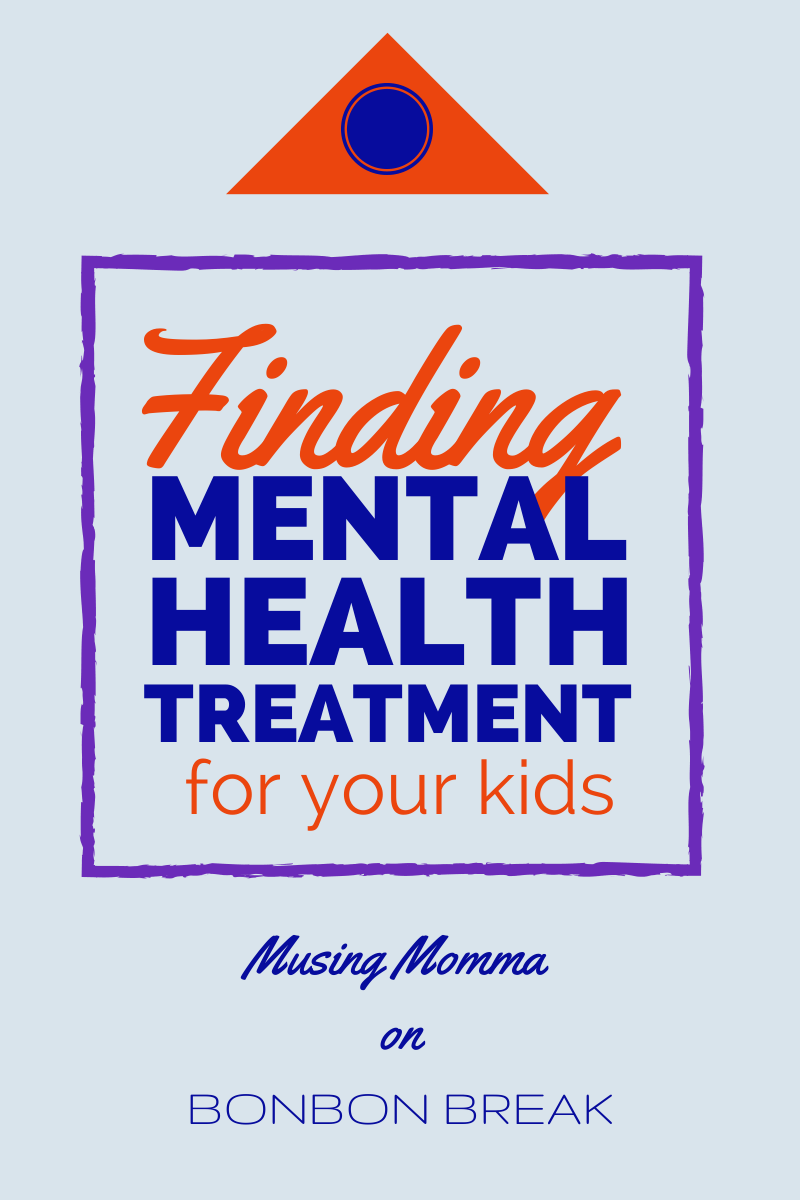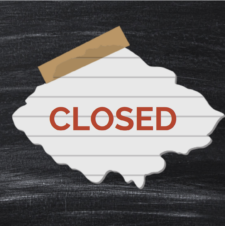Light In The Darkness: The Upside Of My Mental Illness
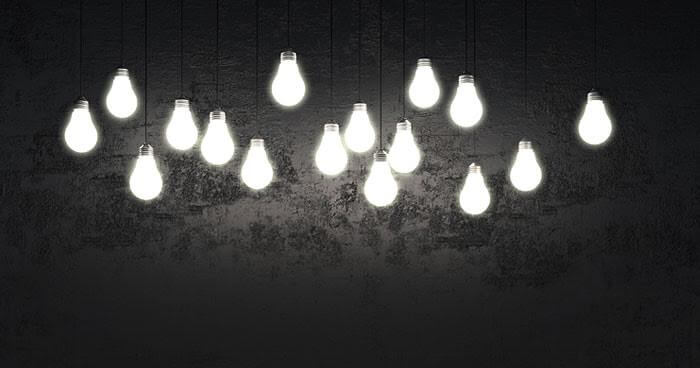
When I first received the diagnosis of depression, I was relieved. I felt a wave wash over me. I’m not crazy, I thought. It’s not all in my head. But as I processed the information, as I processed the fact that I had a mental illness, I began to struggle. I began to feel “less than.”
And I felt that way for most of my 16-year diagnosis: damaged, broken, and not okay. However, what time — and countless therapists — have taught me is that I am valuable. I am worthwhile. I am not my disease and, instead, I am just a person — a whole person, who happens to have an illness. Would I rather be “normal?” Of course. But since depression is part of the hand I was dealt, I have learned to play with what I have instead of longing for what I don’t and, in doing so, I have learned there is an upside to my mental illness.
Empathy, Accountability and The Power of an Apology
Depression has taught me to be both empathetic and accountable. It has allowed me to be understanding of others (i.e. that bout of road rage may be the result of something darker, something deeper), and it has indirectly allowed me to teach my daughter about empathy. You see, I am far from perfect. I still struggle. I cry. I lash out and, some days, I don’t do anything at all: I just sit there, a functionless, emotionless mess. And while I do not apologize for my depression — and never will — I have learned to apologize for how my actions impact others. I have learned how to say I’m sorry, and I have learned that apologizing for my behavior isn’t the same as apologizing for my disease.
Self-Compassion/Care
Like most who suffer from a mental illness, my mind is my own worst enemy; I am my own worst enemy. I fight my feelings, I fight myself, and then I berate myself when I cannot stop the sadness, the hopelessness, or the all-or-nothing thinking. I hate myself when I cannot be the wife I want to be and the mother I should be, and then the guilt kicks in — which makes me cry harder, and feel completely and utterly worthless. But I have learned to apply the empathy I exhibit towards others towards myself. I have learned to face my feelings — to face the numbness, emptiness, anger, sadness, anxiety, and rage — and I have learned to sit with and every emotion instead of fighting them. And I won’t lie: This is easier said than done, and sometimes means letting my daughter watch an extra episode of Sesame Street or Mickey Mouse Clubhouse, but if I allow myself time to sit and breath and feel, I am often better. (Not cured, but more like the woman I want to be than the one I sometimes am.)
How To Ask For Help
While my depression has taught me how to ask for help — i.e. I have been able to tell my husband if I am having a shitty day, for no identifiable reason — this is the thing I struggle with most. Because asking for help means admitting I am vulnerable. Asking for help means admitting I am not okay. Asking for help means admitting I cannot do it alone, and whether it be pride or stubbornness I don’t know, but after 16 years, I still cringe at the idea. That said, I am trying. I am asking for help before I get “in crisis.” I am attempting to strengthen relationships with friends and family when I am “okay,” and I am attempting to be okay with not being okay. And while my walls cannot come down overnight, knocking any chunk out of this concrete barrier I’ve constructed is a win.
Strength: Because I Am Okay, I Will Be Okay
While I can ask friends and family for help and see doctors to manage both my moods and medication, the truth is no one will walk the path of recovery for me. No one will carry me but me, and no one can save me but me. This means I not only need the tools but the strength: the strength to accept my feelings — no matter what — the strength to push on, and the strength to know I am okay. To know that I will, eventually, be okay.
While mental illnesses can make problems seem insurmountable and permanent, they may not be. There are many people who want to support those with mental illnesses, especially during difficult times. Contact CrisisChat.org or call 1-800-273-TALK in the U.S. (Outside the US? Visit suicide.org to find help in your country.).
MORE INSPIRATION:
- Why I Stopped Saying No to Screen Time
- Modes of Motherhood
- 10 Inspiring Ways to Keep Hope Alive
- It’s A Race But It’s Not A Race
Take a peek at the INSPIRE posts
PIN IT FOR LATER
This post was written by Kimberly Zapata exclusively for BonBon Break Media, LLC.
Would you like to sponsor a theme? Click here.


